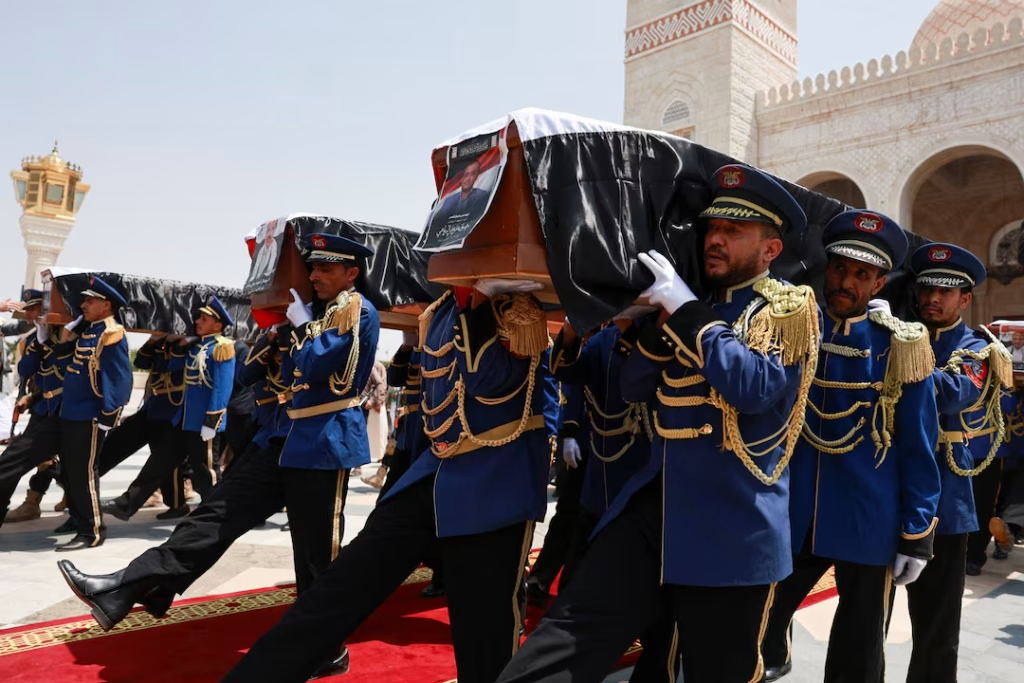Thousands of mourners gathered at the Al Saleh mosque in Sanaa, Yemen’s capital, on Monday for the funeral of 12 senior Houthi figures, including their prime minister, who were killed in an Israeli airstrike last Thursday. The attack, which marked the first time top Houthi officials were assassinated, struck a gathering of people watching a televised speech by the group’s top leader, Abdul Malik al-Houthi, and resulted in the deaths of most members of the group’s cabinet.
During the funeral, mourners chanted the Houthi slogan—”God is Great, Death to America, Death to Israel, Curse on the Jews, Victory to Islam”—as Mohammed Miftah, the new de facto head of the Iran-aligned government, vowed revenge. Miftah, who became acting leader following the death of Prime Minister Ahmad Ghaleb al-Rahwi, accused a coalition of the “Zionist entity,” the U.S. administration, Arab allies, and internal spies of carrying out the attack. He also promised an internal security crackdown.
The power dynamics within the Houthi leadership are now under scrutiny. While the slain prime minister was largely a figurehead, the fate of the group’s powerful defence minister, Mohamed al-Atifi, who runs the critical Missiles Brigades Group, remains unclear as he has not been seen since the attack. Israel stated that its strike targeted the Houthis’ chief of staff, defence minister, and other senior officials and that it was verifying the results.
In a related development, the Houthis raided United Nations offices in Sanaa on Sunday, detaining at least 11 UN personnel. The group, which has previously detained aid workers on suspicion of espionage, provided no reason for the raid. This action is seen as part of the promised internal crackdown on alleged spies following the devastating strike.














